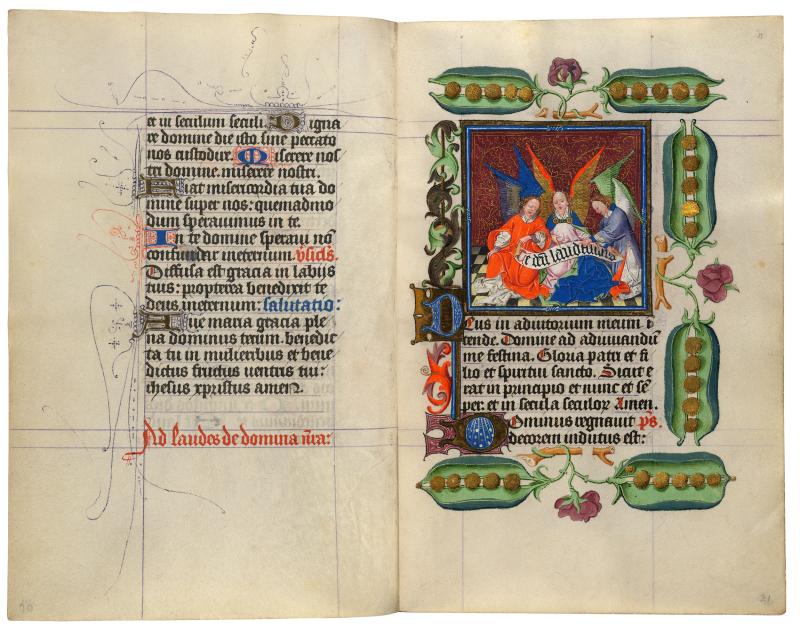
Singing Angels
Purchased on the Belle da Costa Greene Fund with the assistance of the Fellows and with special assistance of Mrs. Frederick B. Adams, Sr., Mrs. Robert Charles, Mr. Laurens M. Hamilton, The Heineman Foundation, Mrs. Donald F. Hyde, Mrs. Jacob M. Kaplan
Three angels sing the Te deum (We praise thee, O God), a hymn that appears at the end of Matins of the Virgin. Angels are mentioned first in the hymn's list of those who joyfully worship God. In the margins, golden peas in open pods symbolize fertility—the theme of the full-page miniature (one of eleven now missing from the manuscript) that originally faced these chanting angels. This was the Annunciation to Anne that she was pregnant with the Virgin Mary.
